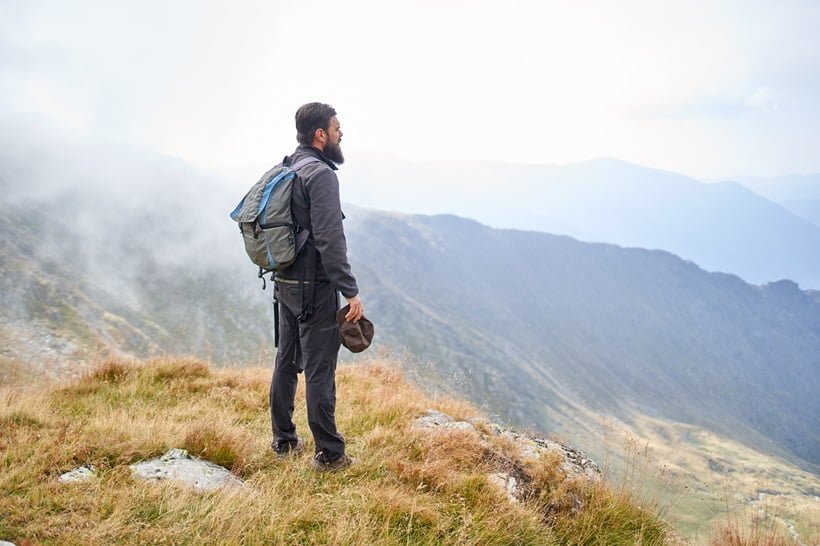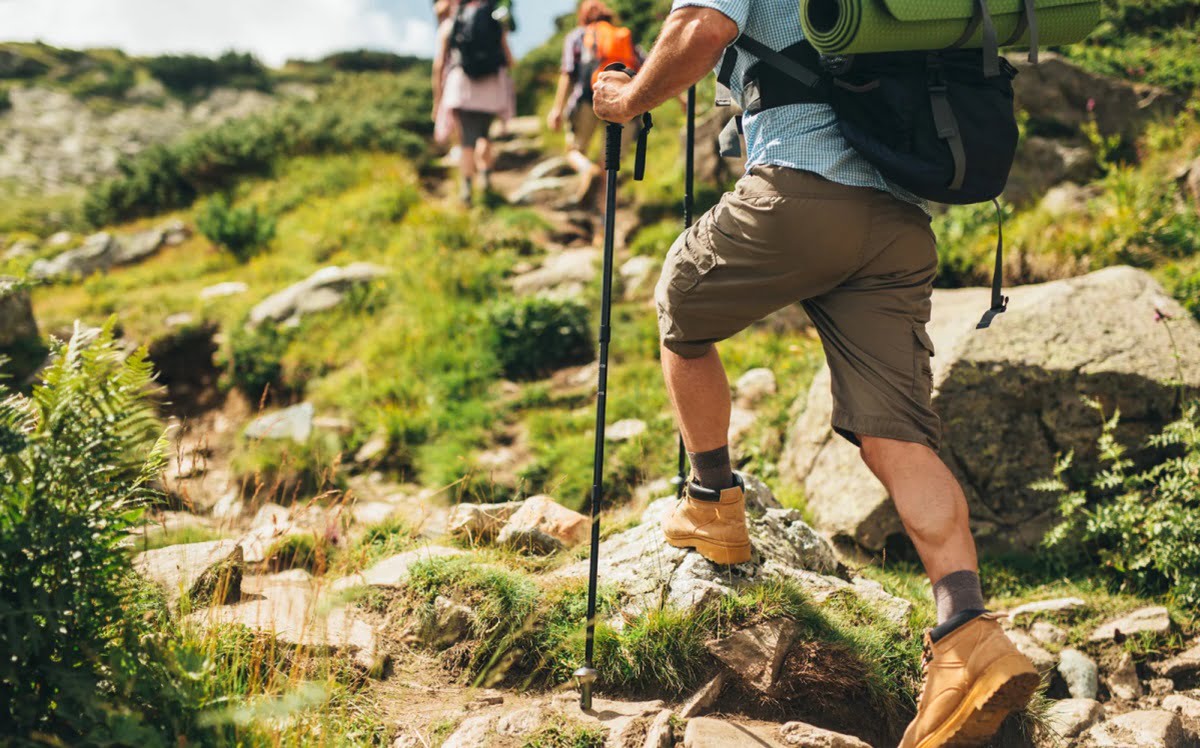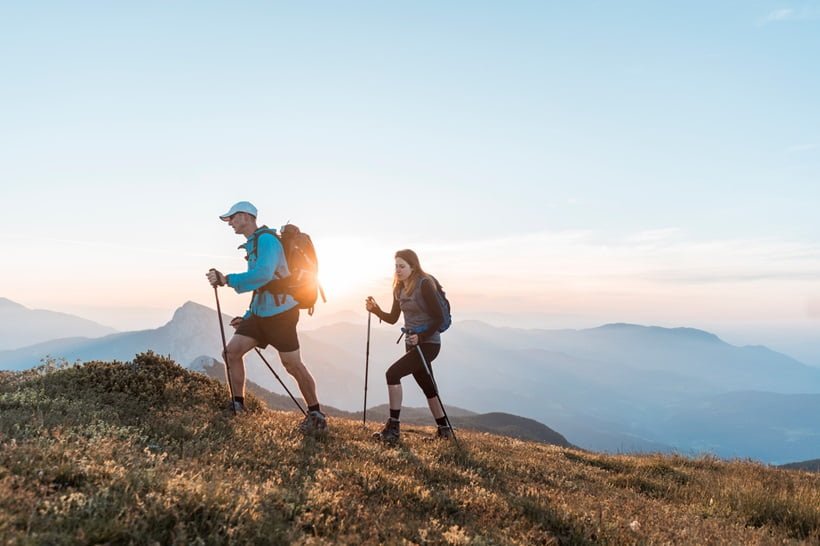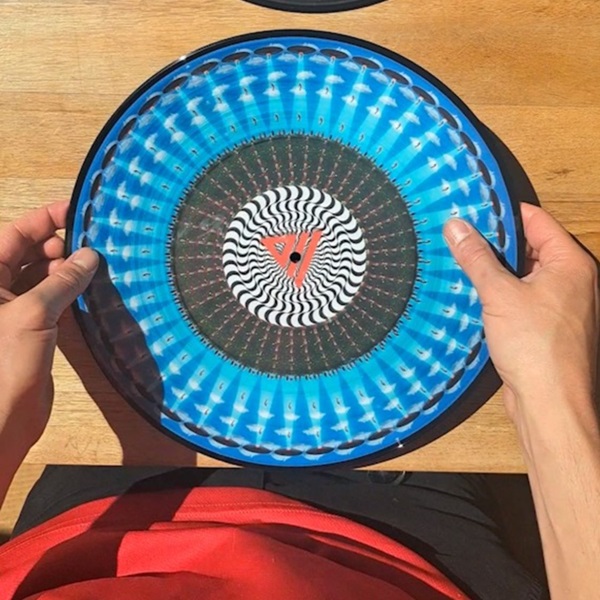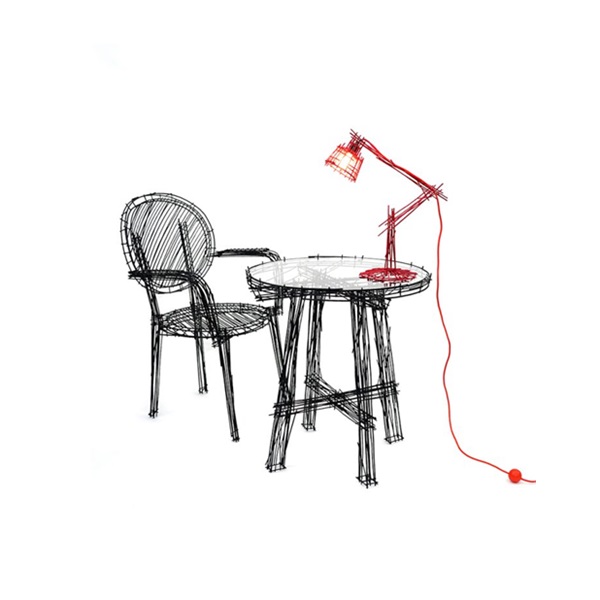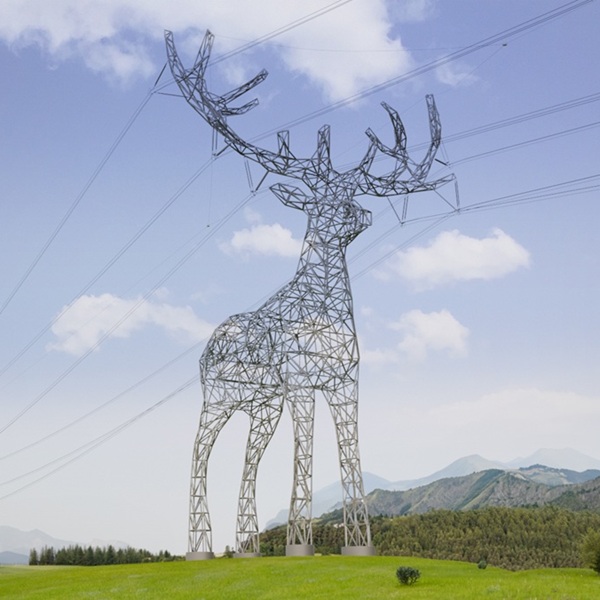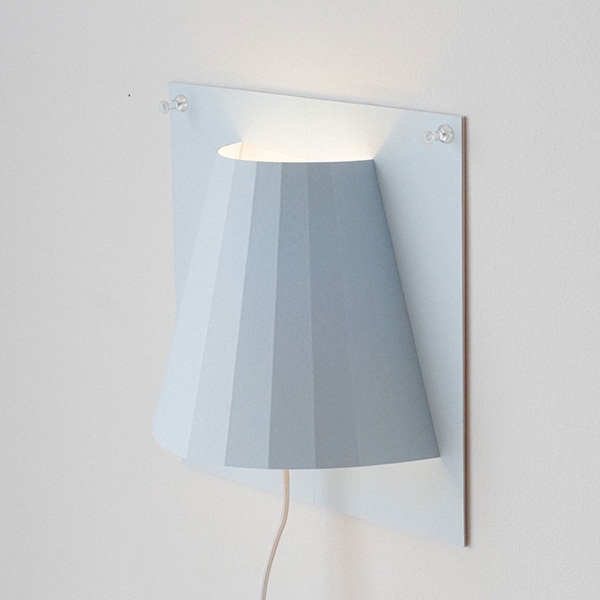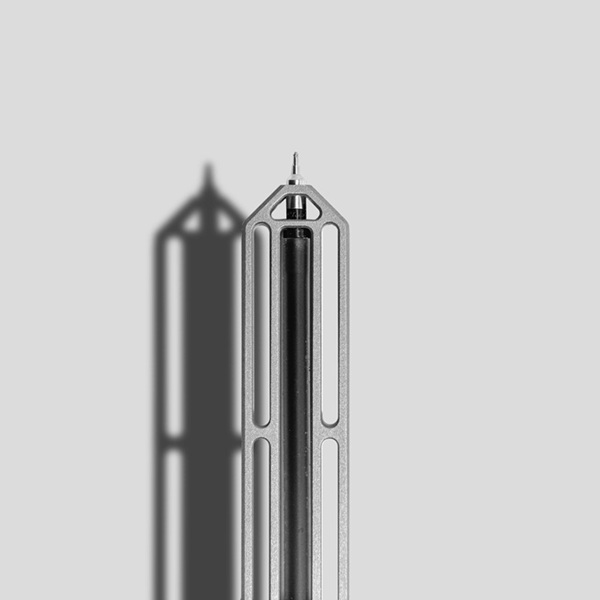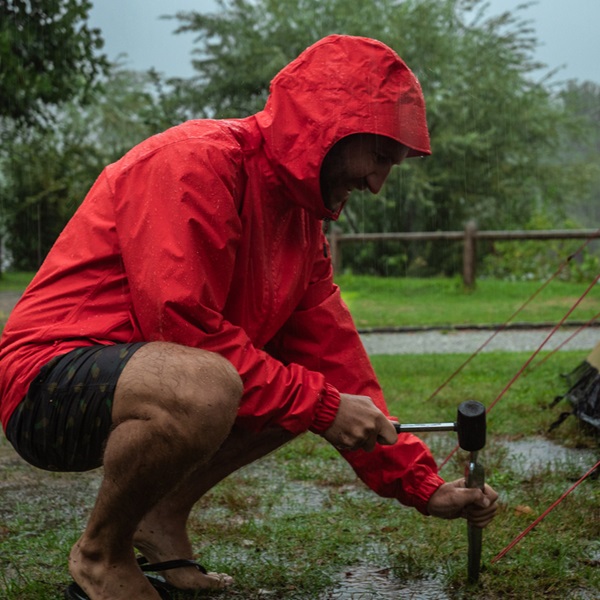
Going hiking without the right hiking attire can turn an exhilarating experience into a challenging ordeal. Because weather conditions in the great outdoors are notoriously unpredictable, The weather can swing from scorching heat to bone-chilling cold in a matter of hours. Therefore, it is of utmost importance to know what to wear when hiking.
Selecting the appropriate gear ensures you are ready for any weather scenario thrown your way, improving your enjoyment and safety on the trail. This guide aims to demystify the essentials of hiking apparel. In addition, we provide you with expert advice on what to wear when hiking, so you can focus on the breathtaking views and the thrill of exploration.

What Not to Wear Hiking
Hiking is one of the most exciting hobbies. However, it is more than enthusiasm. Because hiking requires the right hiking outfit. While much emphasis is generally placed on what to wear when hiking summer or winter, it is equally important to know what not to adorn yourself with.

What not to wear when hiking
You should note that you should avoid certain hiking clothes to make a significant difference in your experience.
- Cotton clothing retains moisture. It leaves you feeling damp and cold.
- Flip-flops and sandals offer little support and protection against rugged terrain.
- Heavy denim is restrictive and becomes uncomfortable when wet.
- Non-breathable rainwear traps sweat and leads to overheating.
- III-fitting backpacks can cause back pain and imbalance.
Hiking dress strategies
Apparel for hiking is also important to feel better, confident, and comfortable. To create a perfect wardrobe of hiking clothes for women, men, or children, you should involve strategic layering. Therefore, you should also select materials that adapt to varying clothes. If you are a beginner, you will most probably choose the wrong hiking outfits. In order to avoid the most common mistakes, check out our suggestions for what to wear when hiking in the summer, spring, fall, or winter!
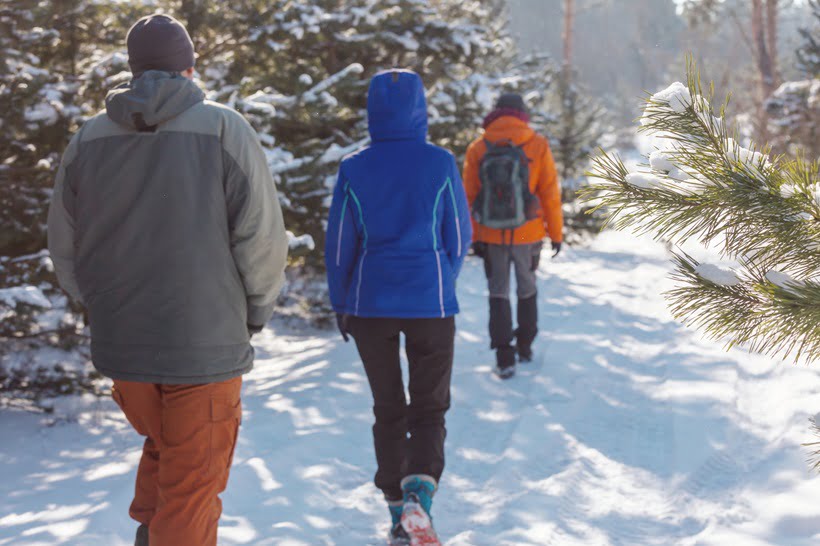
How to layer clothes for hiking?
The cornerstone of hiking clothing is the art of layering. The three-layer clothing principle in hiking allows for easy adaptation to changing temperatures and conditions. This strategy ensures comfort throughout your journey. Start with moisture-wicking base layer clothing for hiking to keep sweat at bay, add insulating mid-layer hiking clothing for warmth, and finish with a waterproof and windproof outer layer. Knowing how to layer clothes for hiking empowers you to adjust your outfit on-the-fly and adapt to whatever the trail throws your way. You should purchase different layers for different seasons. For example, you should know how to layer clothes for winter hiking and summer hiking. Spring and fall also have certain layered hiking outfits.
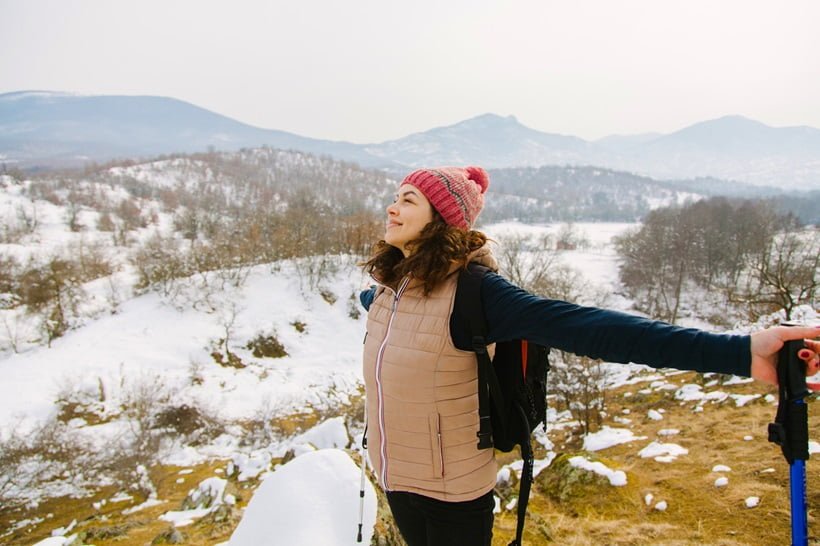
Choosing the Right Fabrics
Fabric selection can make or break your hiking experience. For instance, you should opt for materials that offer breathability, moisture-wicking properties, and quick-drying capabilities. Hiking outfit for women and men made from synthetic fabrics and merino wool are excellent choices, as they keep you dry and comfortable in a variety of conditions. Lastly, you should avoid cotton hiking outfit men and women, as it retains moisture and can lead to chafing and discomfort.
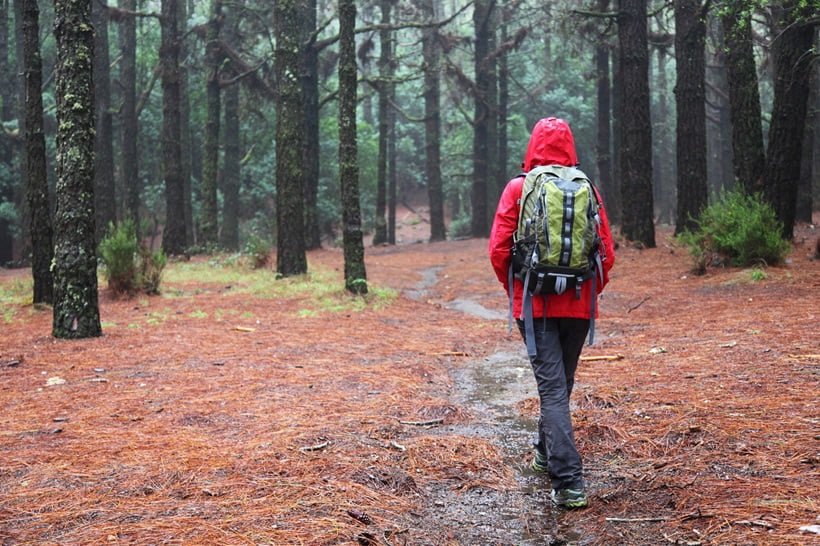
Key fabric properties:
Men’s and women’s hiking apparel can be achieved with the most suitable fabric. Yes, summer walking for once may not require the appropriate clothing if you do not go hiking again. However, if you are looking for a long-term commitment, you should wear hiking clothes made from suitable fabric.
Wicking
Fabrics with wicking properties, such as polyester and merino wool, are essential for base layers. They transfer sweat away from the skin to the outer surface for rapid evaporation.
Insulating
Insulating fabrics, like fleece and down, trap body heat to provide warmth in cold conditions. Men’s and women’s hiking outfit from insulating fabrics are lightweight yet effective. This makes them ideal for maintaining body temperature without adding bulk.
Waterproof and Windproof Hiking Clothes What to Wear
These fabrics, found in outer layers, shield hikers from rain, snow, and wind. Materials like Gore-Tex offer robust protection while being breathable, ensuring that moisture from the inside can escape and keeping the hiker dry from both external elements and internal perspiration.
Breathable Hiking Clothes
Breathable fabrics, often incorporated with waterproof and windproof technologies, allow air to circulate and moisture to escape.
Sun Protection
Fabrics with UV protection, such as those treated with UPF coatings, protect the skin from harmful UV rays. What to wear hiking for sun protection is vital for hikers, as prolonged exposure to the sun can lead to skin damage.
Footwear that Fits
Your feet are your primary mode of transportation on the trail, so investing in high-quality, well-fitting hiking boots or shoes is crucial. If you do not know what to wear on a hike, you can look for footwear that offers support, durability, and traction. In addition, make sure to break them in before going for long hikes to avoid blisters and discomfort. Lastly, pair your footwear with moisture-wicking base layer hiking clothing socks to enhance comfort and prevent foot issues.
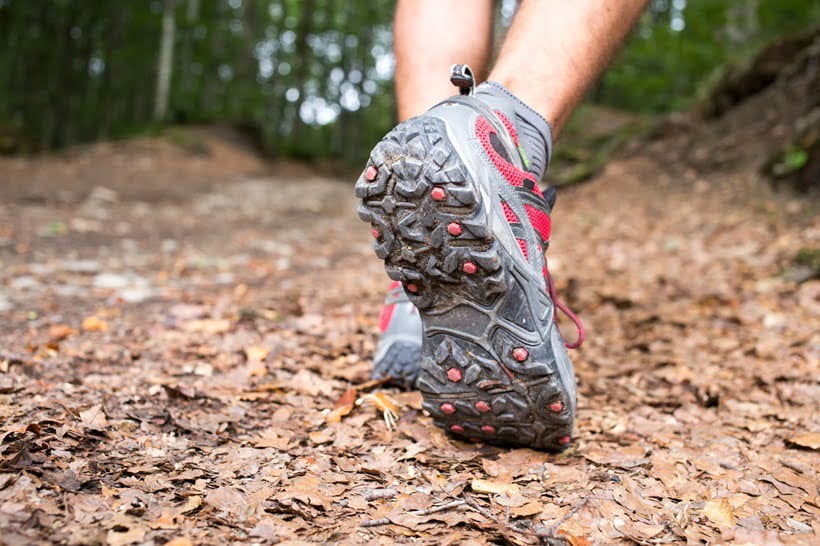
Protecting your skin
Sun protection is often overlooked by hikers, but it is essential for safety on the trail. Incorporate lightweight, long-sleeved best hiking shirts and pants into your outfit to shield your skin from harmful UV rays. Additionally, consider a hat for men and women hiking with a wide brim and sunglasses for added protection. Do not forget to apply sunscreen to exposed areas and reapply as necessary throughout your hike.
Accessorizing Wisely
Hiking gear for women and men can significantly enhance your hiking experience when chosen wisely. A sturdy, well-fitting backpack is essential for carrying your essentials without causing discomfort. Gloves and a warm hat can be lifesavers in colder climates, while a lightweight, breathable hat is perfect for sunnier days. Lastly, ensure you have a reliable hydration system, such as a water bottle or hydration bladder, to stay hydrated without adding unnecessary bulk.
